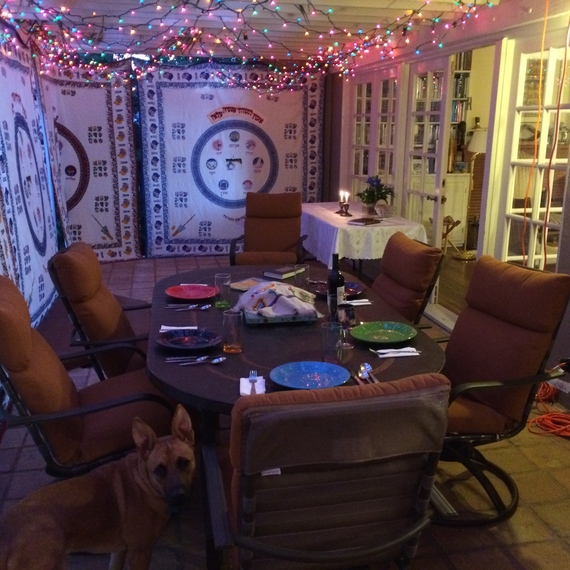Swirling toward the conclusion of the grand pageant of the Days of Awe, a holy day season that launches with the midnight service of Selichot (forgiveness on the Saturday night preceding Rosh Ha-Shanah), then ascending from the New Year days toward the Ten Days of Repentance, we regroup at the preliminary pinnacle of Yom Kippur, and then climb again to the booths of Sukkot, dining and sharing the Festival of Tabernacles which culminates with Shemini Atzeret (an extra Biblical day of rejoicing for its own sake) and the final pinnacle, Simchat Torah, a day for rejoicing as we can dance the Torah into life.
Most wisdom traditions, Judaism included, begin with the surprising and unlikely perception that we live in a uni-verse, noting the surprising coherence and integration that permeates the cosmos. The Universe manifests a raucous diversity in its composition, its elements, its evolution. Yet this surface diversity reflects the emergence and flowering of a deeper unity, of evolving laws, of self-creating elements, of (at least locally) pervasive self-agency that blossoms into mindfulness and, ultimately, into self-consciousness.
Jewish wisdom reminds us that knowledge is not significant if it doesn't engage, mobilize, and connect. Disinterested information doesn't constitute wisdom until it can inspire awe, deepen comprehension, and inspire transformation. In short, knowledge becomes wisdom when it makes real relationship possible. What is hidden is made visible through our effort; what permeates the depths flows to the surface through our acts of covenanting.
Kabbalah (Jewish mysticism) articulates this deepening relationship through two striking metaphors. During the preliminary months leading up to the Days of Awe (Rosh HaShanah and Yom Kippur), it speaks of God as "Ha-Melekh Ba-Sadeh, the Sovereign is in the field." No longer conceived as in a Palace Court, seated on a throne, the image of the divine is one of moving among us, out in the world. In such a time when the Sacred is actively in our midst, we are to consider what a roving eye might see us doing: are we indeed acting as godly as we ought? Are we treating each other and the Earth with a loyal steward's wisdom and vision? God is in the field, so we must act accordingly. Perhaps for that reason, the climax of the Yom Kippur prayers, at the very end of the final service, is the sevenfold repetition of "Ha-Shem Hu Ha-Elohim, the One is the Divine:" visible, manifest, overt.
But with the building of our Sukkot, the festive Booths, that fleeting manifestation of the Divine goes underground. Now we speak of God as "Ha-Melekh Be-Chadro, God is in the Chamber." No longer mingling in our midst, no longer wandering among us, God is again masked, waiting for us to seek out the Divine. We are asked to enter into the Sukkah to perceive God's embrace, no longer explicitly manifest, hidden yet pervading all. The climax at Simchat Torah, amidst our dancing with the Torahs is understated: we read the conclusion of the end of the Torah's final book (Deuteronomy) and launch the reading of the beginning of the first book (Genesis). No grand pronouncement, only endless cycles without explicit affirmation: under the surface, deep, and grounding.
Generally meaning is hidden and masked. Rare are the eruptions of self-identified significance. For most of our lives and for most of the world, we mine the resistant bedrock of history and of family to create relationships in which the hidden might bubble to consciousness, in which meaning might be known through its impact: the choices we make, the values we affirm, the compassion we extend, the justice we enact.
